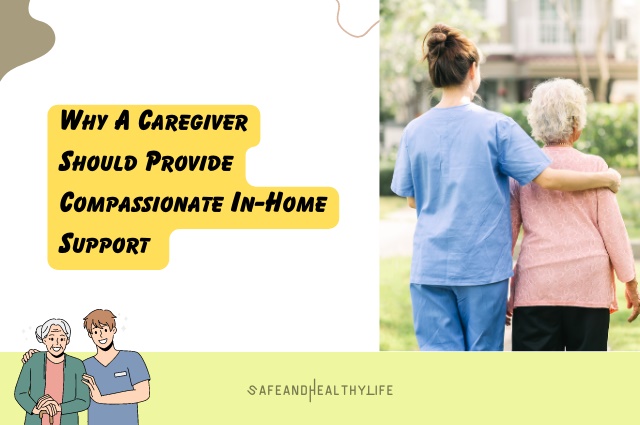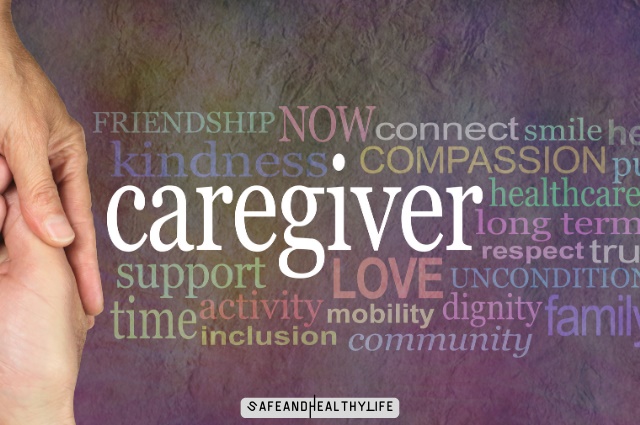
You may also like:
- Technology Assists Dementia Patients and Caregivers
- 5 Ways to Improve Your Wellness as a Senior
- Why Home Care Is Important
Empathy and compassion are vital character traits for caregivers, an essential profession for those unable to care for their own needs but with a desire for independence.
Compassion allows a caregiver to better comprehend the client’s needs and empathize with them.
Go to https://greatergood.berkeley.edu/article/item/how_a_compassionate_caregiver_can_help_you_heal to learn how compassionate caregivers help people heal.
Often caregiving is provided to senior clients or those with a chronic illness or disability. In some cases, family members assume the role of caregiver, or a professional provider will come into the home to offer services.
Professional caregivers work in private homes but also offer care in nursing facilities, assisted living, and hospital settings.
These carers provide an array of services, including companionship, medication management, personal care, help with daily activities, and on.
Compassionate caregivers will be better prepared to offer higher-quality client care, including attentiveness, emotional support, communication, and adequate response to client needs.
This allows a greater sense of security and comfortability for the individual being cared for.
Let’s review tips on success as a compassionate caregiver in the at-home environment.
Tips For Being Successful As A Compassionate In-Home Caregiver

Success when providing compassionate care at home can mean varied things based on your specific circumstances, but as a rule, most strive for compassion for their clients and their own well-being.
This will mean the highest quality care, including responding to client needs patiently and promptly, being attentive, communicating effectively, and offering attention and emotional support.
Let’s review some factors that could help you achieve success as a caregiver.
Keep things organized
When trying to keep a schedule, it can get a little erratic depending on your client’s needs.
The potential to lose track of what needs to be handled is high unless you become organized using a few tools like a calendar or planner, a notepad, or your mobile to keep track of everything with apps.
You can track activities, appointments, socialization, medication, and on. You can even make checklists to ensure you’ve handled everything each day.
The client will appreciate the order and structure as well. No one likes stress or things being out of control.
Take time to learn new skills
You can provide the best care for a client or a family member by taking an opportunity to learn new things, either with continuing education or workshop training online. These allow the latest advances and innovations in caregiving approaches.
When you research and stay on top of recent developments, you won’t only offer emotional support or compassion for needs.
Still, you’ll be able to respond to those needs because you’ll have adequate training with specific skills. Go here for details on receiving training for family caregivers.
Communication is essential when caregiving

In the caregiving profession, effective communication is vital. When speaking with a client or family member, a carer should be distinct and clear but should also have adequate active listening skills.
These qualities are as critical when interacting with medical providers, other professionals, or family members prominent in the individual’s life.
Compassionate listening and empathy are crucial traits to better help a caregiver understand the needs of the person in their care and how to respond to this while helping to support that individual’s independence.
Patience and flexibility go a long way
Caregiving is unpredictable. Each day will be a new adventure, never the same one twice, with usually nothing going as planned. When entering the profession, it’s essential to do so with an open mind, one of patience, flexibility, and adaptability.
That means you can readily adjust when the day takes twists and turns. The aim is always to have an alternative solution if things go off track.
This will ensure a calm transition and allow stability emotionally, mentally, and physically for the client, a priority for their wellness.
Final Thought
Compassion is a priority in caregiving because it allows the carer insight into the client’s needs and helps them empathize with those needs, find a solution for them, and respond while ensuring the client retains their dignity and independence.
No matter the reason, whether a chronic or debilitating illness, disability, or age, somewhere in that person, they want to hold onto their sense of dignity. Everyone should respect that and work to help them achieve it.
About The Author:
Stacey Smith is a freelance health writer. She is passionate to write about women’s health, dental health, diabetes, endocrinology, and nutrition and provides in-depth features on the latest in health news for medical clinics and health magazines.




